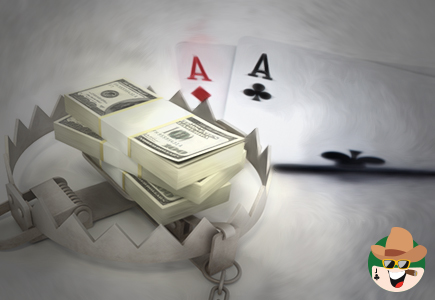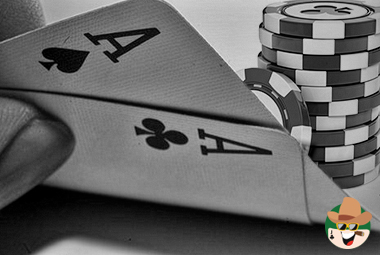

Poker draws people from all walks of life into its circle. But I strongly suspect a high percentage of attorneys and police officers enjoy the game.
It gives them the opportunity to set traps.
Lawyers win cases by outthinking their opposition. This occasionally involves setting a trap for someone involved in a lawsuit. I once covered a court case where F. Lee Bailey, the famed Boston attorney, represented a Navajo tribal officer who was accused of stealing tribal funds.
When Bailey's client was found not guilty, I told him, 'Lee, I have to file a story on this in 10 minutes. Please tell me what brilliant lawyerly skills you used to get your client acquitted.'
Bailey lit up a cigar and said, 'Don't quote me, but our witnesses lied better than theirs did.'
In order to set up a poker trap for the other players, you need to study their patterns of play. For example, if a player raises too many pots with sub-standard hands, this is a pattern that can play into your hands.
There was a player who did this constantly at our table. I decided to lay a trap for him and the opportunity came when the dealer dealt me pocket aces. I was in early position and I could see the raiser reaching for his chips. I just called and sure enough, he came out with a raise. I just called and waited for the flop.
The flop was a pair of eights and a three. Perfect for me. I checked and the raiser came out betting. One other player called and I tossed in my chips. An ace fell on fourth street. I checked and the raiser came out betting. The other player called and so did I.
On fifth street I made my bet. The raiser quickly folded and the other player, who had made three eights, called. I won the pot with a full house.

Here is another trap you can set for a frequent raiser. Let's say you are dealt k-q suited. The frequent raiser doubles the bet. You call. The flop comes 7-7-9. You check. The raiser tosses in his chips. You call.
On fourth street, the dealer turns up a queen. None of the cards match your hand -- but this time you come out betting. In 19 cases out of 20, the raiser will fold his hand and the dealer will push you the pot.
Think like an attorney or a police officer who is trying to trap a criminal. After a while, it will be easy for you to set up traps. Remember that you only have to win two or three big pots per hour to stay ahead of the game. Players who play too many hands give away an unnecessary number of chips. Don't fall victim to that habit.
If there are no raises and the only other callers are solid players who rarely trick, you can bet any scary flop. If the dealer flops a low pair, that's scary and it probably did not hit any of the other players. Your bet should win the pot.
Another good poker trap is to re-raise a frequent raiser when you are holding garbage cards. If he folds, you win. If he calls, you come out betting and you will win the vast majority of the time.
Follow F. Lee Bailey's advice: let your witnesses lie better than theirs. It will build up your bankroll and the case will be marked closed. Let the games begin.
Author: Geno Lawrenzi Jr.
(Geno Lawrenzi Jr. is an international journalist, magazine author and ghostwriter and poker player who lives in Phoenx, AZ. He has published 2,000 articles in 50 magazines and 125 newspapers. If you want to share a gambling story or book idea with him, send an email to glawrenzi@gmail.com ).





